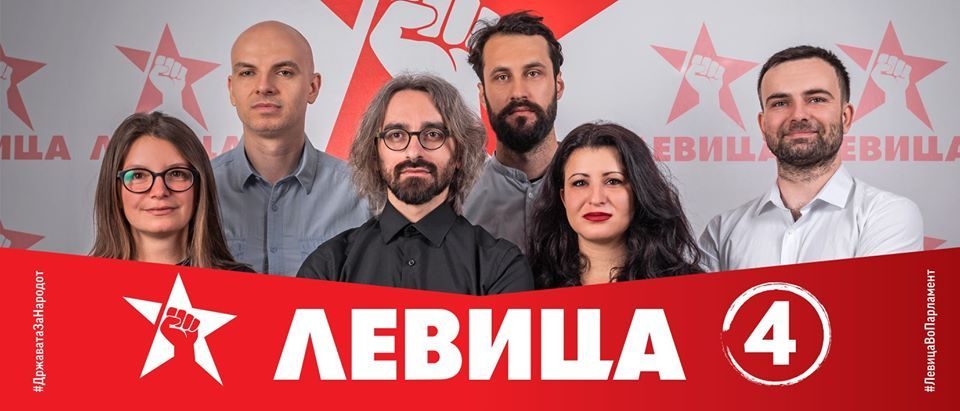The left wing populist Levica party was one of the big winners of the local elections. The party didn’t win a single mayoral seat and is not running for any in the second round on October 31st, but, in line with its slogan “put Levica in your municipal council” it did exceptionally well in the council races.
It is often the third strongest party in the races in Macedonian majority municipalities, especially in the more urban Skopje municipalities, and won dozens of council seats. In some places it gets close to the SDSM tally of votes. Despite expectations that Levica will take votes from VMRO-DPMNE due to its loud objection to the name change and other national humiliations imposed by Zoran Zaev – the party often campaigned to the right of the conservative VMRO on these issues – it seems that its biggest source of new voters were actually soft supporters of the SDSM party, which saw its support collapse in Skopje and other urban centers. Levica leader Dimitar Apasieve refers to this as “Pasokization” – named after the process in which the SYRIZA party in Greece cannibalized the establishment social-democratic PASOK party.
VMRO-DPMNE won most of the mayoral races by largely preserving its share of votes while SDSM went into a nosedive. But Levica voters could still be important for VMRO in the two big remaining races – the capital Skopje and Bitola, where VMRO is in a narrow lead against SDSM. In Skopje, the Levica candidate, bass player Petar Georgievski Kamikaza did very well, and is the third ranked candidate with 20,000 votes. “A third place medal is given in a marathon, not in a political race”, he said after the election, and did not endorse a candidate for the run-off, but given how he joined in the criticism of SDSM candidate Silegov in the pre-election debates, and the overall political alignment, it’s clear that the Levica voters will trend right. Apasiev refused the VMRO offer of cooperation ahead of the elections, determined to maintain his independence, but after the first round he said that now he is open to talk, about the remaining races and about future moves in Parliament to bring down Zaev’s Government.
We do not make coalitions as a matter of principle. It is possible that, on a municipality to a municipality basis, we call on our supporters to vote for the opposition candidate, but we will wait for them to invite us to negotiate. After the elections, we can negotiate the creation of a new ruling coalition in the Parliament. There is talk for a possible new ruling majority and that option is on the table, Apasiev said.
During the campaign, VMRO and Levica often devolved in angry disputes, as Levica tried to out-VMRO VMRO on the issues of national identity. VMRO President Hristijan Mickoski would often rebuke them and warned against voting for the smaller, protest parties as it helps Zaev maintain power. VMRO supporters would remind Levica activists how they helped install Zaev in power when they loudly supported his Colored Revolution in 2015. But with Zaev now badly shaken, the two opposition parties could be ready to turn a new leaf.




Comments are closed for this post.